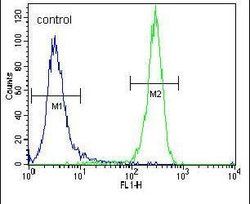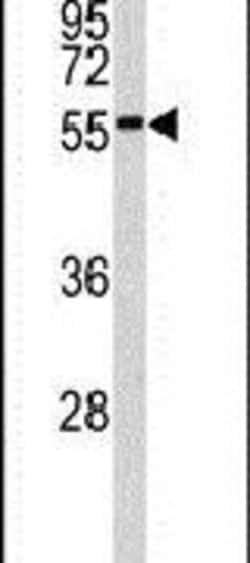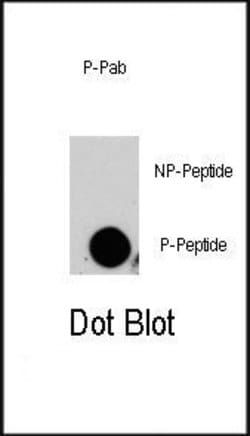MST1 (STK4) Polyclonal Antibody, Invitrogen™
Manufacturer: Thermo Scientific
Select a Size
| Pack Size | SKU | Availability | Price |
|---|---|---|---|
| Each of 1 | PIPA5141095-Each-of-1 | In Stock | ₹ 41,741.00 |
PIPA5141095 - Each of 1
In Stock
Quantity
1
Base Price: ₹ 41,741.00
GST (18%): ₹ 7,513.38
Total Price: ₹ 49,254.38
Antigen
MST1 (STK4)
Classification
Polyclonal
Conjugate
Unconjugated
Gene
Stk4
Gene Alias
AI447339; AU020804; EC 2.7.11.1; Kas-2; kinase MST1; kinase responsive to stress 2; KRS2; Mammalian STE20-like protein kinase 1; mammalian sterile 20-like 1; MST1; MST-1; MST1/C; MST1/N; serine/threonine kinase 4; serine/threonine-protein kinase 4; Serine/threonine-protein kinase 4 18kDa subunit; Serine/threonine-protein kinase 4 37kDa subunit; Serine/threonine-protein kinase Krs-2; STE20-like kinase MST1; sterile 20-like kinase 1; STK4; TIIAC; Yeast Sps1/Ste20-related kinase 3; Ysk3
Host Species
Rabbit
Purification Method
Antigen affinity chromatography
Regulatory Status
RUO
Gene ID (Entrez)
58231, 6789
Content And Storage
Store at 4°C short term. For long term storage, store at -20°C, avoiding freeze/thaw cycles.
Isotype
IgG
Applications
Immunohistochemistry (Paraffin), Western Blot
Concentration
1 mg/mL
Formulation
TBS with 0.2% BSA, 50% glycerol and 0.05% sodium azide; pH 7.4
Gene Accession No.
Q13043, Q9JI11
Gene Symbols
Stk4
Immunogen
Synthetic peptide within human MST1 aa 400-450.
Quantity
100 μL
Primary or Secondary
Primary
Target Species
Human, Mouse
Form
Liquid
Description
- STK4 (MST1) is a serine/threonine kinase which may be involved in apoptosis
- It is possible that this protein induces the chromatin condensation observed in this process
- STK4 is a stress-activated, pro-apoptotic kinase which, following caspase-cleavage, enters the nucleus and induces chromatin condensation followed by internucleosomal DNA fragmentation
- It is a key component of the Hippo signaling pathway which plays a pivotal role in organ size control and tumor suppression by restricting proliferation and promoting apoptosis
- The core of this pathway is composed of a kinase cascade wherein STK3/MST2 and STK4/MST1, in complex with its regulatory protein SAV1, phosphorylates and activates LATS1/2 in complex with its regulatory protein MOB1, which in turn phosphorylates and inactivates YAP1 oncoprotein and WWTR1/TAZ
- Phosphorylation of YAP1 by LATS2 inhibits its translocation into the nucleus to regulate cellular genes important for cell proliferation, cell death, and cell migration
- STK3/MST2 and STK4/MST1 are required to repress proliferation of mature hepatocytes, to prevent activation of facultative adult liver stem cells (oval cells), and to inhibit tumor formation.



